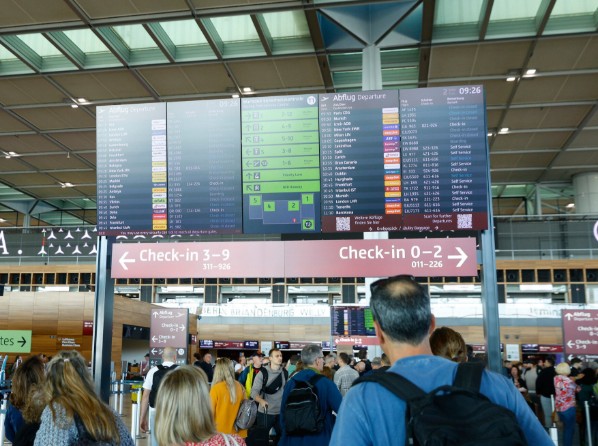Cyberattack Disrupts Major Airports Across Europe and Australia

London, UK / Berlin, Germany / Brussels, Belgium / Sydney, Australia — A massive cyberattack on a third-party aviation technology provider has caused widespread disruptions at multiple international airports, including London Heathrow, Berlin Brandenburg, Brussels Airport, and Sydney Airport in Australia.
The breach, which impacted automated check-in and boarding systems, forced airport staff to manually process passengers, leading to significant flight delays and cancellations across Europe and the Asia-Pacific region.
According to airport authorities and media reports, the attack targeted systems run by Collins Aerospace, a major global supplier of aviation technology services. The company provides essential IT infrastructure to airlines and airport operators, including passenger processing and flight information management systems.
Scope of the Disruption
Heathrow Airport confirmed the issue stemmed from a service outage at Collins Aerospace, which temporarily crippled their self-service kiosks and automated boarding gates.
Brussels Airport described the impact as “large-scale”, with many flights experiencing delays and check-ins being handled entirely by hand.
Berlin Brandenburg Airport warned passengers to expect longer queues and slower check-in procedures, urging travelers to arrive well in advance.
Sydney Airport reported similar technical issues, although local officials have not confirmed whether the same cyberattack was responsible.
The coordinated nature of the outages across geographically dispersed airports has raised concerns about a deliberate cyberattack on critical infrastructure, rather than a technical glitch or localized failure.
Who Is Collins Aerospace?
Collins Aerospace, a subsidiary of RTX Corporation (formerly Raytheon Technologies), provides advanced digital systems used by commercial airlines and airport operators globally. Their technology underpins everything from passenger processing to baggage handling and aircraft avionics.
The company has not yet publicly confirmed the nature of the breach or the method used by attackers. However, cybersecurity analysts speculate that it may involve ransomware or a supply chain exploit both increasingly common attack vectors targeting third-party service providers.
Cybersecurity and Aviation: A Growing Concern
This incident is the latest in a troubling trend of cyberattacks targeting transportation infrastructure. Airports, airlines, and air traffic control systems rely heavily on interconnected digital platforms many of which are operated by external vendors making them increasingly vulnerable to cyber threats.
“The aviation sector has become a high-value target,” said a cybersecurity expert at a European security conference. “A successful attack can cause immediate chaos and has serious national security implications.”
In 2023, several U.S. airports were hit by denial-of-service attacks linked to pro-Russian hacker groups. Earlier this year, the FAA in the United States reported increased probing of airline booking systems by unknown actors.
Passenger Impact and Response
Airports have urged passengers to:
Check flight status regularly
Arrive early for manual check-in
Prepare for longer processing times
Airlines are working to rebook affected travelers and minimize cascading delays. As systems come back online, full restoration of services may take several hours or longer depending on the scope of the attack.
Governments across Europe and Australia are reportedly conducting joint cybersecurity assessments, while the EU Aviation Safety Agency (EASA) has issued a heightened alert for IT system monitoring at key travel hubs.
What Comes Next?
Authorities are now investigating whether the cyberattack was part of a coordinated campaign, and whether state-backed actors or criminal hacking groups may have been involved. Intelligence agencies have not yet released any formal attribution.
With global air travel volumes surging, the incident underscores the urgent need to harden digital infrastructure across aviation networks.
“This isn’t just about delays it’s about digital resilience,” said one EU official. “Airports are part of our critical infrastructure. And we just found out how fragile some of it still is.”

jilibet004 https://www.jilibet004.org
I don’t think the title of your article matches the content lol. Just kidding, mainly because I had some doubts after reading the article.